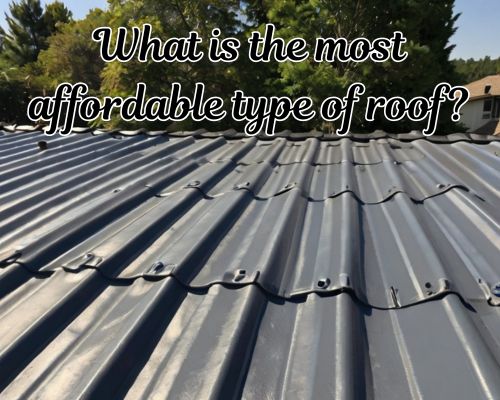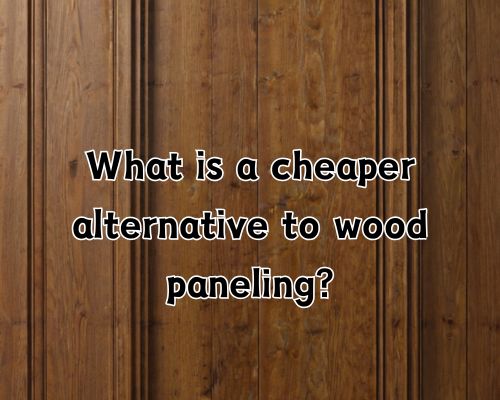What Is the Most Affordable Type of Roof? A West Palm Beach Homeowner’s Guide
In a sunny, hurricane-prone location like West Palm Beach, Florida, the question isn’t just what roof looks best—it’s what roof makes sense financially and practically. If you’ve asked yourself, “What is the most affordable type of roof?”, you’re not alone. Roofing costs can be daunting, especially for homeowners navigating rising material prices, insurance rates, and strict building codes in Palm Beach County.

Whether you’re planning a roof replacement or building a new home in West Palm Beach, with David Spade of Star Roofing, we’ll break down the most cost-effective roofing options based on local climate, installation costs, lifespan, and energy efficiency—so you can make an informed decision without compromising your budget.
Understanding Affordability: It’s More Than Just Price
When we talk about the “most affordable roof,” we’re not just referring to the upfront installation cost. A truly affordable roofing system offers:
- Low initial cost
- Durable performance over time
- Minimal maintenance requirements
- Energy savings, especially in hot, humid climates like Florida
- Storm resistance, crucial during hurricane season
In West Palm Beach, where average summer highs reach 90°F and rainfall exceeds 60 inches annually, your roofing material must handle UV exposure, humidity, and high winds. Let’s compare the top affordable options on the market today.
Asphalt Shingles: The King of Budget Roofing
Asphalt shingles are the most commonly installed roofing material across the U.S.—and for good reason. They strike the perfect balance between low cost, ease of installation, and reliable performance.
Why Asphalt Shingles Work in West Palm Beach:
- Cost: On average, asphalt shingle roofs cost $3.50–$5.50 per square foot installed.
- Durability: When properly installed, they last 15–30 years in Florida’s climate.
- Wind resistance: Modern shingles can be rated for winds up to 130 mph, a must in hurricane-prone areas.
- Reflective options: Some shingles are ENERGY STAR® rated, helping to reflect solar heat and lower cooling bills.
Downsides:
- Susceptible to algae and mildew in humid climates unless treated.
- May require more frequent replacement compared to other roofing types.
Verdict: For most West Palm Beach homeowners, asphalt shingles are the most affordable type of roof when considering cost-to-value ratio.
Metal Roofing: More Expensive Upfront, Cheaper Over Time
Metal roofing has gained popularity across South Florida, especially in coastal neighborhoods like Palm Beach Gardens and Boynton Beach. While the initial investment is higher, its longevity and efficiency can make it more cost-effective in the long run.
Benefits in West Palm Beach:
- Energy efficiency: Metal reflects sunlight, lowering cooling costs by up to 25%.
- Durability: Lifespan ranges from 40 to 70 years.
- Storm safety: With proper fastening, metal roofing can withstand hurricane-force winds up to 140+ mph.
- Insurance incentives: Florida insurers may offer discounts for homes with metal roofs due to their resilience.
Cost:
- Typically $8–$12 per square foot installed.
- Higher upfront cost, but minimal maintenance over decades.
Verdict: While not the cheapest option upfront, metal roofs may be the most affordable long-term investment, especially in West Palm Beach’s hot and stormy climate.
Rolled Roofing: A Budget-Friendly Option for Low-Slope Roofs
If you own a shed, garage, or low-slope structure in West Palm Beach, rolled roofing may be your answer to the cheapest roofing solution.
Pros:
- Low cost: Just $1.50–$2.50 per square foot installed.
- Quick installation: Great for small, flat-roof structures.
- Water-resistant: Works well in short-term scenarios.
Cons:
- Short lifespan: Usually 5–10 years.
- Not ideal for residential roofs with pitch.
- Limited aesthetic appeal.
Verdict: Best for outbuildings or temporary use—not ideal for the main home in West Palm Beach.
TPO Roofing: A Budget Winner for Flat Roofs
Thermoplastic Polyolefin (TPO roofing) is a cost-effective choice for flat or low-slope roofs, commonly seen on condos, commercial buildings, or modern homes in West Palm Beach.
Advantages:
- Energy-efficient: White TPO membranes reflect UV rays, reducing cooling load.
- Affordability: Costs range from $4.50–$6.50 per square foot installed.
- Longevity: Offers a 15–20-year lifespan with proper maintenance.
- Waterproof barrier: Ideal for rainy seasons.
Verdict: If your West Palm Beach home has a flat roof, TPO is one of the most affordable and efficient choices.
Clay Tile: Beautiful but Not Budget-Friendly
You’ve probably seen clay tile roofs on Mediterranean-style homes around Palm Beach Island and Downtown West Palm Beach. While they’re iconic and last up to 100 years, they’re far from affordable for most homeowners.
Cost:
- Starts at $10–$20 per square foot installed.
- Heavy material requires structural reinforcement, adding to cost.
Verdict: Clay tiles are stunning, but not remotely affordable unless you have a luxury home budget.
For more, go to David Spade of Star Roofing.
Cost Comparison Snapshot (Per Square Foot Installed)
| Roofing Type | Cost | Lifespan | Hurricane Resistance | Best Use Case |
|---|---|---|---|---|
| Asphalt Shingles | $3.50–$5.50 | 15–30 years | Good (up to 130 mph) | Budget residential roofing |
| Metal Roofing | $8–$12 | 40–70 years | Excellent (up to 140+ mph) | Long-term investment |
| Rolled Roofing | $1.50–$2.50 | 5–10 years | Fair | Sheds, garages |
| TPO Roofing | $4.50–$6.50 | 15–20 years | Good | Flat-roof homes & condos |
| Clay Tile | $10–$20 | 50–100 years | Excellent | Luxury homes |
Local Insights: Roofing in West Palm Beach
🏠 Building codes in Palm Beach County require roofing materials to meet wind uplift standards, especially after Hurricane Andrew led to major regulatory reforms. Always hire a licensed roofing contractor familiar with Florida Building Code (FBC).
🏡 Popular roofing companies like Cesar’s Roofing, Tiger Team Roofing, and Paul Bange Roofing offer budget-friendly asphalt and metal roofing solutions tailored to West Palm Beach conditions.
🌴 Don’t forget about cool roofing incentives and insurance discounts under Florida’s Wind Mitigation Inspection Program—especially relevant for materials like metal and certain shingles.
Final Verdict: What Is the Most Affordable Type of Roof in West Palm Beach?
If you’re on a tight budget and need a roof that works well in Florida’s extreme weather, architectural asphalt shingles win as the most affordable roofing material overall. They’re:
- Low cost to install
- Easy to repair
- Available with algae-resistant and wind-rated options ideal for South Florida
However, if you’re planning to stay in your home for decades or want to increase your home’s value, metal roofing may deliver the best long-term affordability.
Need a Quote in West Palm Beach?
Before you decide, get at least three local roofing quotes and ask about:
- Wind mitigation ratings
- Energy efficiency
- Warranty options
- Storm damage repair policies
Be sure to compare both costs and value—and choose the roof that protects your home without busting your budget.

